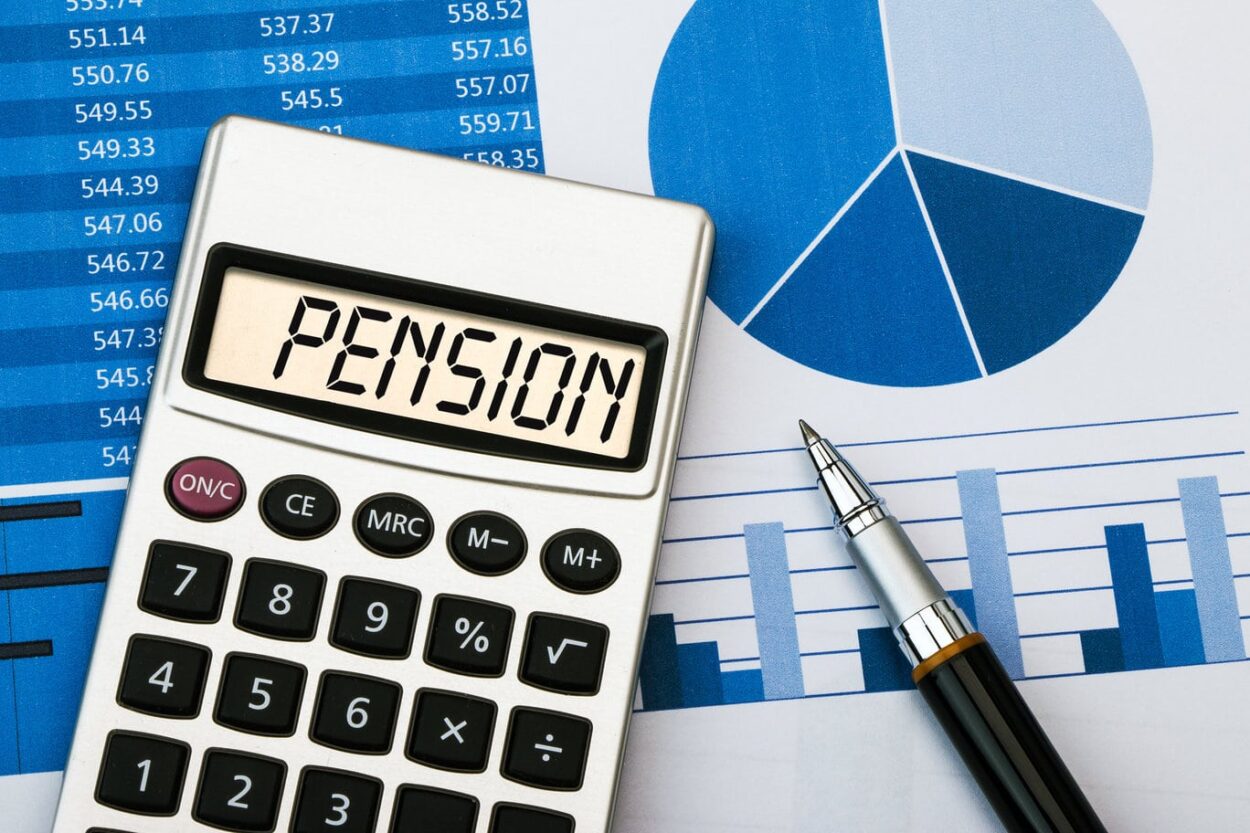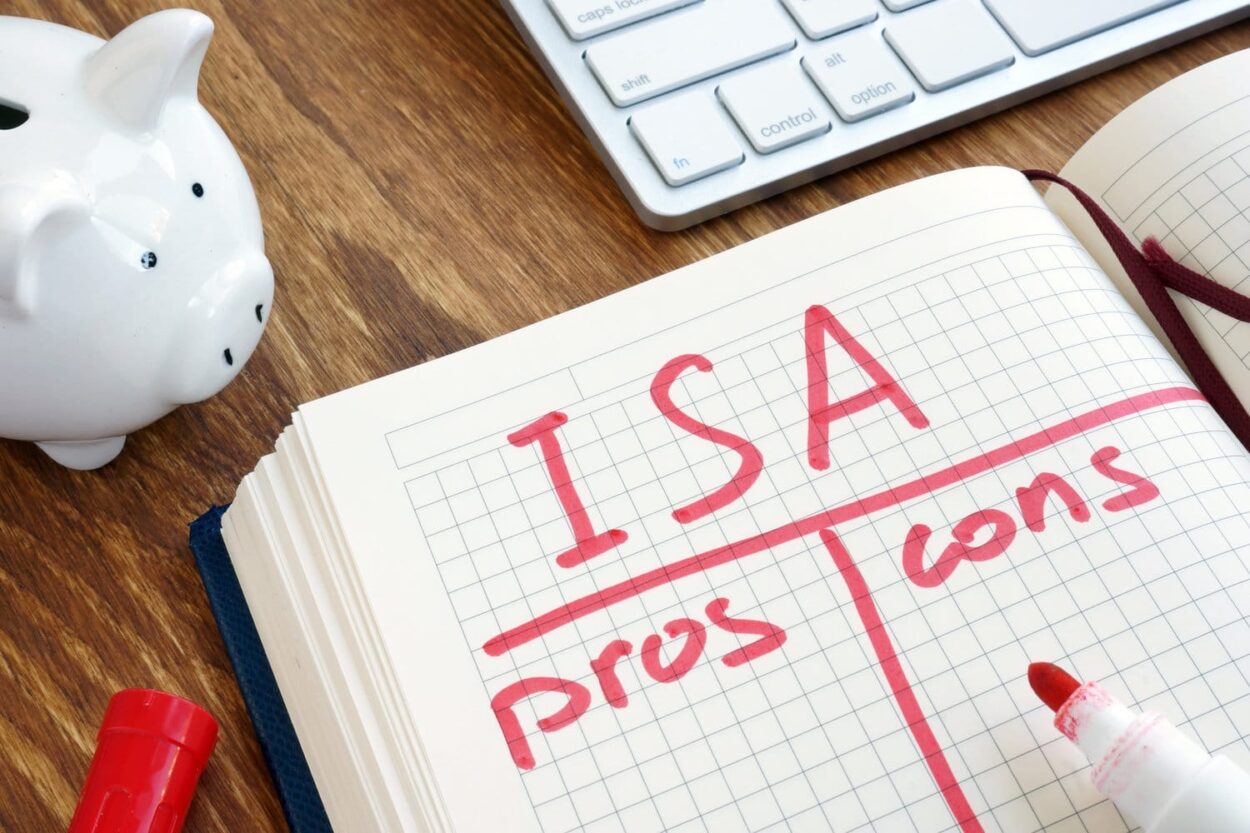Jasmine Birtles
Your money-making expert. Financial journalist, TV and radio personality.

Most people aim to enjoy their retirement after decades of hard work preparing for it. Unfortunately though, the current state pension only provides a yearly income of £9,110.40. Making it essential to have additional retirement plans in place to continue to live a similar quality of life into your retirement.
You can check your state pension forecast online to see what you might be receiving later in life.
Whether pensions or ISAs are better for retirement planning is greatly debated. Whilst they both have long-term benefits, there are different rules around allowances, tax, and investments for both of them. However, for retirement savers, weighing up the options of a pension vs ISA is a big decision, and one that needs to be carefully considered.

Pensions are complex and daunting to think about but it’s crucial to understand how their advantages can help you save for retirement.
The Government is keen to encourage people to put money into a pension pot, which is why they come with tax relief. As long as you pay Income Tax and contribute into either a personal or workplace pension, then you’re eligible for it. However, if you do not pay Income Tax due to a lower income, you are still entitled to 20% tax relief on the first £2,880 you pay in to your pension every tax year.
Exactly how much tax relief you do get is based on what rate of Income Tax you normally pay. For example, a basic rate taxpayer gets 20% tax relief. If they were to contribute £100 from their salary into a pension, it would actually only cost them £80 as the government contributes £20. Basically refunding the 20% Income Tax that would’ve taken and putting it into your pension instead.
However, a higher rate taxpayer can claim 40% tax relief, and additional rate taxpayers can claim 45%. If they contributed £100 to their pensions it would actually only cost them £60, and £55 respectively.
You can deposit up to £40,000 into your pension every tax year without losing your tax-free benefits. This allowance is double that of ISAs, meaning a pension over an ISA is especially beneficial to higher rate taxpayers, who get the most relief.
The additional tax benefit that pensions offer is that when you turn 55 and are able to access your pension fund, you can choose to withdraw a 25% chunk tax-free. Although once you do draw on your pension the remaining amount will be taxed normally as it constitutes income. Which for most people means they’ll be taxed at the basic rate of 20%.
This is free money – depending on how much you earn, your employer legally has to contribute to your pension fund. If you don’t have a workplace pension you’re missing out on this additional income, although, once you’ve opted in contributions will also be deducted from your salary.
The amount you and your employer pay towards your pension depends on:
The difference is that if you were automatically enrolled both you and your employer must pay a percentage of your earnings into your pension scheme. Normally contributions are made on total earnings between £6,240 and £50,000 a year, before tax. As of 2019, the minimum contribution is a combined total of 8%, with at least 3% of that contributed by your employer. Whereas if you voluntarily enrolled in your pension scheme, the minimum is based on earnings.
In this case your employer must contribute the minimum amount of 3% when you earn more than:
There is no legal requirement for them to contribute anything if you earn these amounts or less.
Self-Invested Personal Pension (SIPP) tend to offer much better investment opportunities than workplace pensions, which can be slightly limited. SIPPs tend to have more variance in where capital is invested, offer a larger range of funds than workplace pensions, and give you more choice over where your money is invested.
This option benefits people with a larger appetite for risk that may wish to invest in funds with a higher risk or a greater reward potential. Although, stocks and shares ISAs also give you this flexibility.
All contributions paid into your pension fund are invested and are allowed to grow tax-free until you decide to withdraw your pension benefits. As you are not paying tax on it, pension funds will grow quicker than similar taxable funds and there’ll be greater benefits from compound interest. The longer your pension is left for, the more time it has to grow.

An ISA is a tax wrapper. There are different rules to using an ISA for tax-efficient savings compared to a pension.
There are four types of ISA available; you can choose between them or opt for a combination of all four, depending on what your financial needs are.
The four types of ISA are:
You are able to pay into one of each during the tax year, with a total ISA investment of up to £20,000. However, you can only pay a maximum of £4,000 each year into a Lifetime ISA.
Cash ISAs offer even more flexibility as you can choose between instant access or fixed. But fixed-rate ISAs mean you’ll have to lock your money away for a period of time, often a few years. These can be a good compromise – locking your money way means you receive better interest rates and benefit from saving for the long-term but without the commitment of saying goodbye to the cash until you reach 55.
Unlike with a pension, withdrawals from ISAs can be made at almost any time. The exception is Lifetime ISAs, which we cover separately below. ISAs allow people who are further away from retirement, or less secure in their financial situation, to still invest and benefit without needing to worry about not seeing that money again until retirement age.
Although some ISAs have notice periods (usually 30 – 90 days) which you’ll need to give to avoid penalties, there are many that don’t. Plenty of ISAs allow instant access to your cash should you need it.
Compared to the complexity of pensions and tax, ISAs are incredibly simple.
Putting money into a cash ISA means you don’t need to worry – the growth of the account isn’t taxed, neither is the interest earned. Stocks and shares ISAs offer tax-free growth on any money put in, and you also don’t pay Capital Gains Tax on any profits made from investments.
ISAs also have much simpler tax rules when it comes to withdrawing money. Withdrawing money from an ISA at retirement age becomes a tax-free income. Unlike withdrawing from your pension, which is taxed after the first 25%. The ISA tax-free income also has no impact on any age-related allowances for the over 65s.
As part of the pension vs ISA debate, Lifetime ISAs (LISAs) are the closest products to compare. Lifetime ISAs operate differently to regular ISAs. LISAs can actually be seen as another pension option, as to withdraw from it without a 20% charge you either have to be 60, or buying a house as a first-time buyer.
The reason these are a particularly good option to consider is because for everything you save, the government will add a 25% bonus to your savings. You can deposit up to £4,000 a year into a LISA, and receive a bonus of up to £1,000 every year.
You must be over 18 but under 40 to be eligible, but can continue to pay into the account up until you’re 50. Once you hit 50 you won’t be able to pay into the LISA anymore but the account will remain open and you’ll still receive interest and returns on investments.
In particular, this is a very useful option for freelancers and self-employed workers who don’t benefit from workplace pensions.
For more information check out What is a LISA and Should I Get One?
It’s really not so much a case of pension vs ISA, but rather pension AND ISA. You’re best off investing for your long-term retirement plans into a pension – and spreading your savings into a range of ISA options for short-, medium- and long-term investment and saving options. Pensions lock your money away with great potential for growth before retirement; ISAs allow you to access tax-free savings whenever you need a capital boost (except Lifetime ISAs).
You can find more information on both pensions and ISAs here:

Some food for thought here. Thank you.